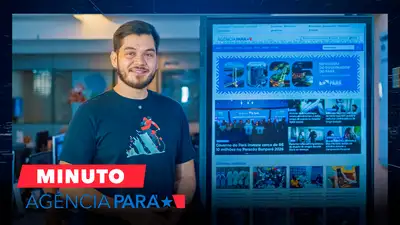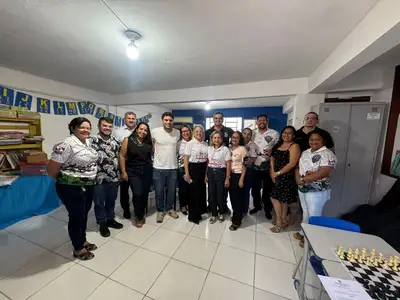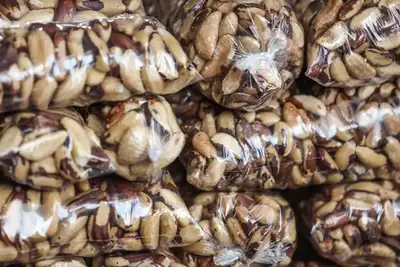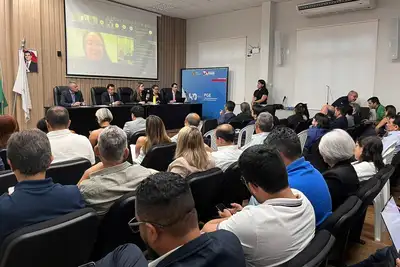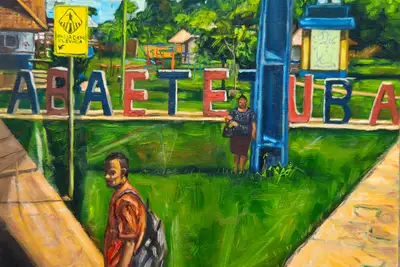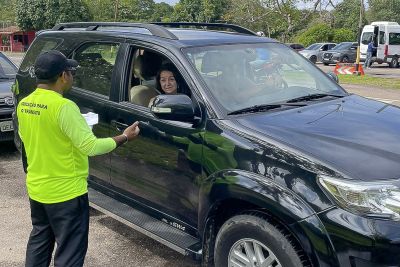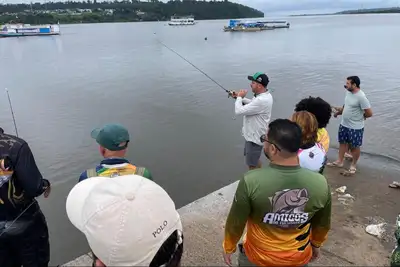Coastal Management in the State Gains Focus at the Pará Pavilion Panel at COP 30
The theme was addressed in the panel "Coastal Management in Pará: science and territory management to face climate change" at COP 30
The State Secretariat for Environment, Climate and Sustainability (Semas) participated in the panel "Coastal Management in Pará: science and territory management to face climate change" as part of the programming of the Pará Pavilion at the Green Zone of the 30th Conference of the Parties (COP) in Belém.
The presentation included the presence of government, academia, and environmental agencies that operate in the coastal zone, all integrated for the management of this area. "The partnership between the entities allows for the consolidation of agendas and the effectiveness of conservation actions," highlights Cláudio Sampaio, Coastal Planning and Zoning Manager at Semas.
Cláudio emphasized that attention to the coastal zone must be doubled for socioeconomic development. "The coastal zone is on the front line due to climate change. For this reason, the focus on this portion of the Pará territory must be given special care, recognizing the importance of the cities and communities that play a fundamental role in the socioeconomic and environmental development of the region," he pointed out.
The territorial coordinator of Belém for the Chico Mendes Institute for Biodiversity (ICMBio), Willian Fernandes, highlighted the importance of communities and their role in the conservation of the coastal zone. "The ultimate goal of management is for civil society to be valued in the process, ensuring that coastal communities have resources so that they do not abandon the crucial mission of conserving these spaces for the state."
The coordinator of the Mangrove Ecology Laboratory (LAMA) and professor at the Federal University of Pará (UFPA), Marcus Fernandes, emphasized the relevance of Amazonian mangroves, their ecosystem services, and structural and environmental vulnerabilities, as well as highlighting the role of science through applied research, generating data and subsidies for management.
"Traditional knowledge and the co-production of new knowledge, through participatory socio-environmental extension, constitute the path that connects science to public policies, strengthening increasingly resilient management models."
Text by Vitor Hugo Ribeiro / Ascom Semas





